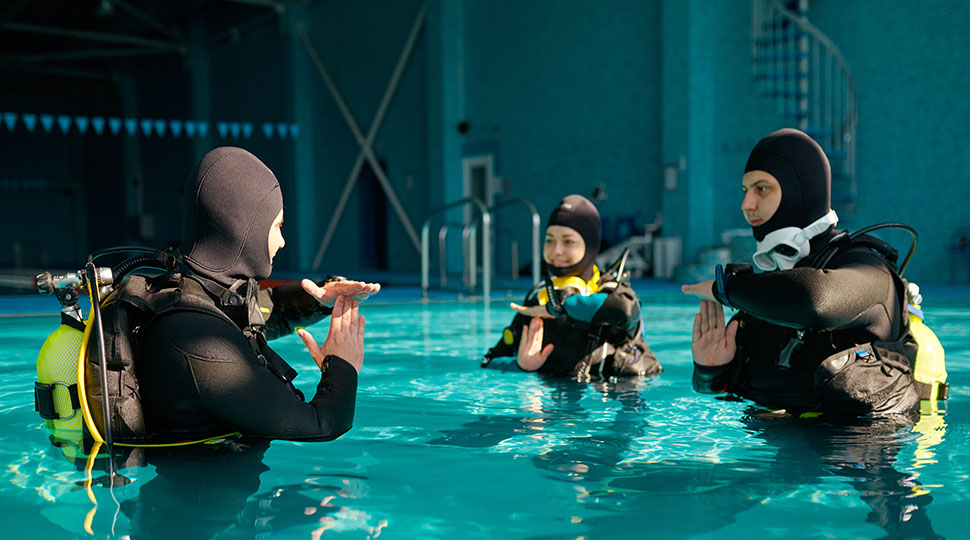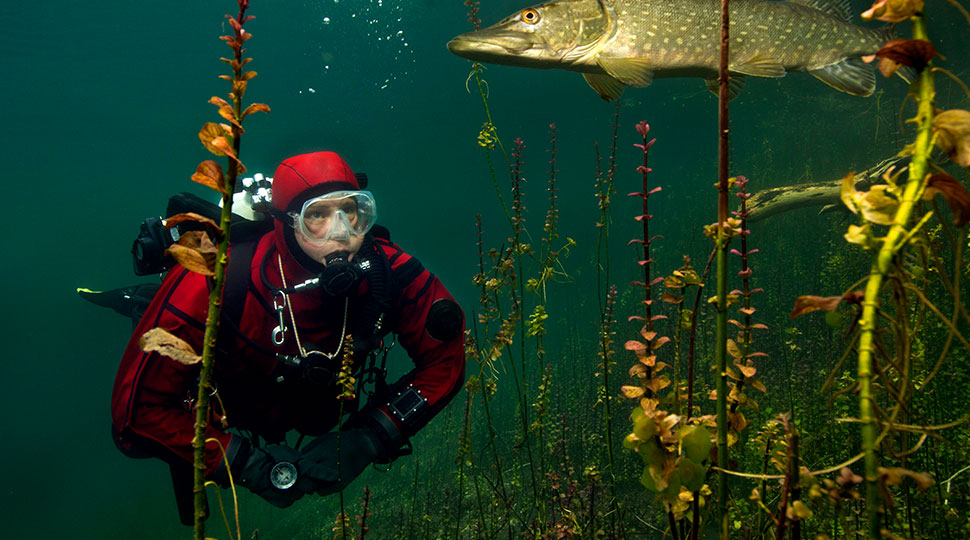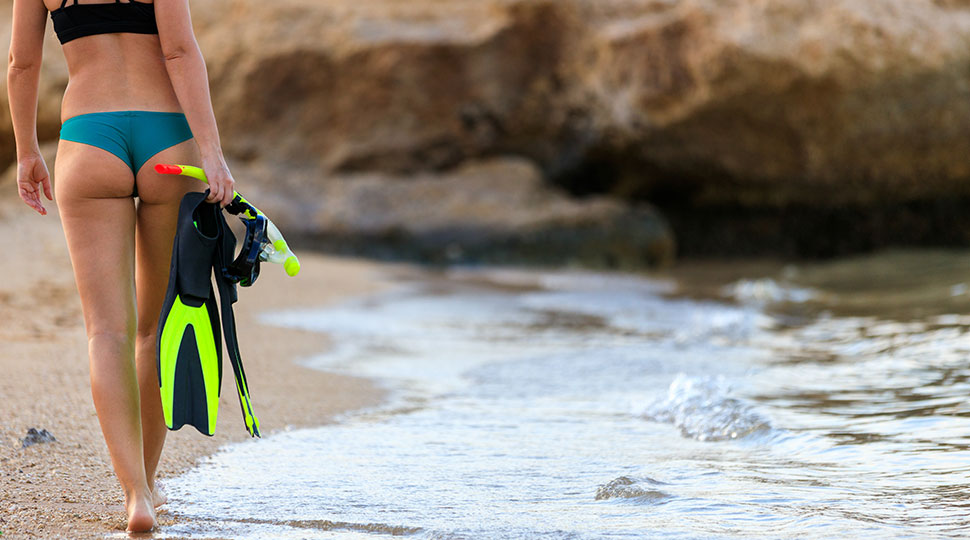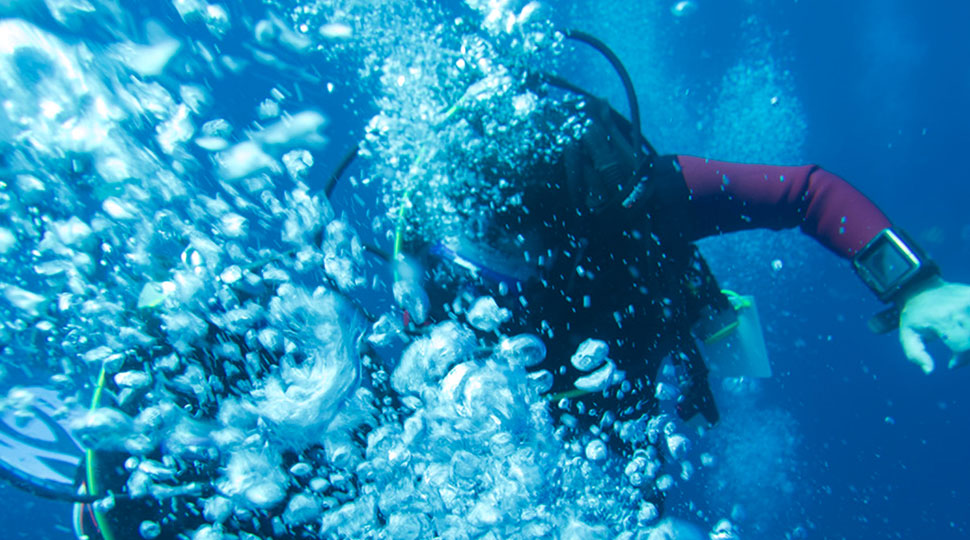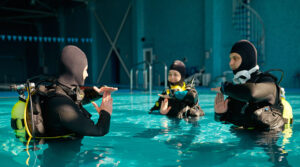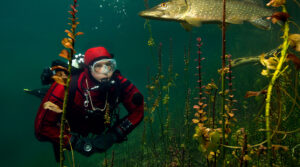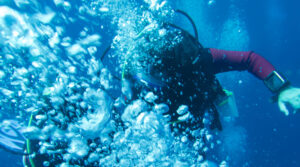Adaptive diving is revolutionizing the way people with disabilities experience the underwater world, shattering the misconception that scuba diving is only for able-bodied individuals.
For too long, scuba diving has been perceived as an exclusive activity, inaccessible to those with physical or intellectual disabilities. However, this perception is slowly changing, and adaptive diving is at the forefront of this transformation.
Efforts are being made to make scuba diving more accessible to people with disabilities, and the benefits of adaptive diving are undeniable.
Adaptive scuba diving is not just about providing a new recreational activity for individuals with disabilities; it’s about empowering them to experience the thrill of discovery, challenge themselves, and connect with others who share similar experiences.
Increasing Accessibility: Organizations Leading the Charge
Several organizations and initiatives are working tirelessly to increase accessibility in scuba diving. One such organization is Adaptive Divers, a non-profit that provides specialized training and equipment for individuals with physical disabilities.
Their mission is to empower people with disabilities to experience the thrill of scuba diving, regardless of their abilities.
Adaptive Divers’ instructors are trained to work with students who may require additional support and accommodations during their dives. From adapting equipment to providing one-on-one instruction, Adaptive Divers ensures that every individual has a safe and enjoyable experience.
Their adaptive diving program is designed to be inclusive, allowing individuals with physical disabilities to participate in scuba diving activities alongside able-bodied divers.
Another initiative is Dive In, a program that offers adaptive diving lessons specifically designed for individuals with intellectual or developmental disabilities. The program’s instructors are trained to work with students who may require additional support and accommodations during their dives.
Dive In’s adaptive diving program focuses on building confidence, promoting independence, and fostering social connections among participants.
These organizations, along with others like them, are paving the way for a more inclusive scuba diving community. By providing specialized training and equipment, they’re making it possible for people with disabilities to experience the thrill of scuba diving, regardless of their abilities.
Unlocking the Benefits of Adaptive Scuba Diving
Adaptive scuba diving offers a wide range of benefits that extend far beyond the thrill of exploring the underwater world. For individuals with disabilities, adaptive diving provides an opportunity to challenge themselves, build confidence, and experience a sense of accomplishment.
Physically, adaptive scuba diving can have a profound impact on an individual’s health. Scuba diving requires strength, flexibility, and cardiovascular endurance, all of which can be improved through regular practice.
As participants dive more frequently, they may notice improvements in their overall physical fitness, including increased muscle tone, enhanced coordination, and boosted energy levels.
But the benefits don’t stop there. Adaptive scuba diving also offers emotional benefits that are just as significant. For individuals who may have previously felt limited by their disabilities, adaptive diving provides an opportunity to push beyond perceived boundaries and experience the thrill of exploring the underwater world.
The sense of accomplishment that comes with overcoming challenges while diving can be incredibly empowering, boosting self-esteem and confidence.
Real-Life Examples of People with Disabilities Enjoying Scuba Diving
Adaptive scuba diving is not just about theory; it’s about real people experiencing the thrill of discovery and challenge. One inspiring example is Sarah (for privacy reasons, Sarah is not her real name), a young woman with cerebral palsy who discovered her passion for scuba diving through Adaptive Divers.
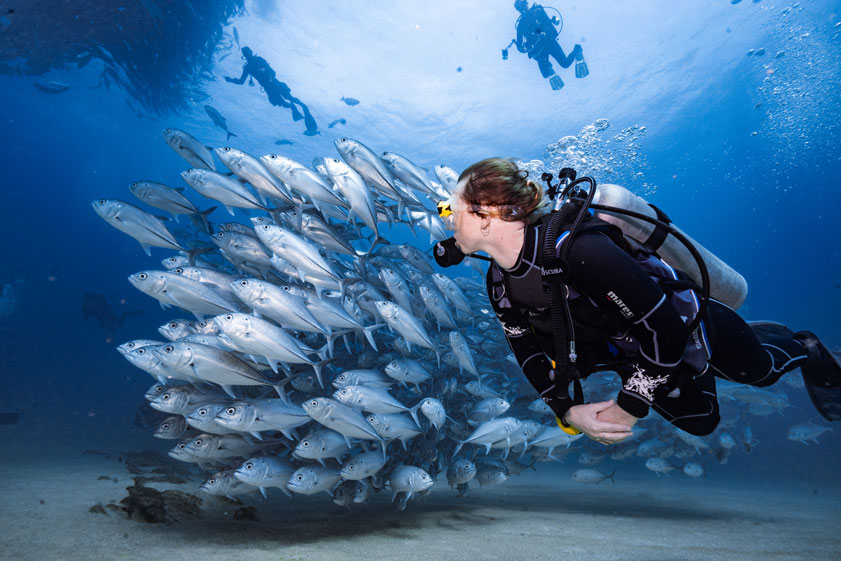
Despite initial doubts from her family and friends, Sarah persevered and eventually earned her certification.
Today, she’s an active member of the adaptive community, sharing her experiences and encouraging others to follow in her footsteps.
Sarah’s story is a testament to the power of adaptive scuba diving, demonstrating that with the right support and training, anyone can overcome their limitations and achieve their goals.
Another example is John (again for privacy reasons, we are not using John’s real name), a veteran with a spinal cord injury who was introduced to scuba diving through Dive In. With the support of his instructors and fellow divers, John has gone on to complete multiple dives and even participated in an underwater cleanup event.
John’s story highlights the importance of scuba diving programs like Dive In, which provide individuals with disabilities the opportunity to experience the thrill of scuba diving while also promoting independence and social connections.
These real-life examples demonstrate that adaptive scuba diving is not just a recreational activity, but a powerful tool for building confidence, promoting independence, and fostering social connections among individuals with disabilities.
The Safety Stop
As adaptive scuba diving continues to grow in popularity, it’s clear that this trend is here to stay. By providing specialized training and equipment, organizations like Adaptive Divers and Dive In are making it possible for people with disabilities to experience the thrill of scuba diving.
Whether you’re an individual looking to challenge yourself or a family member seeking to support a loved one, adaptive scuba diving offers a unique opportunity to connect with others who share similar experiences and interests.

